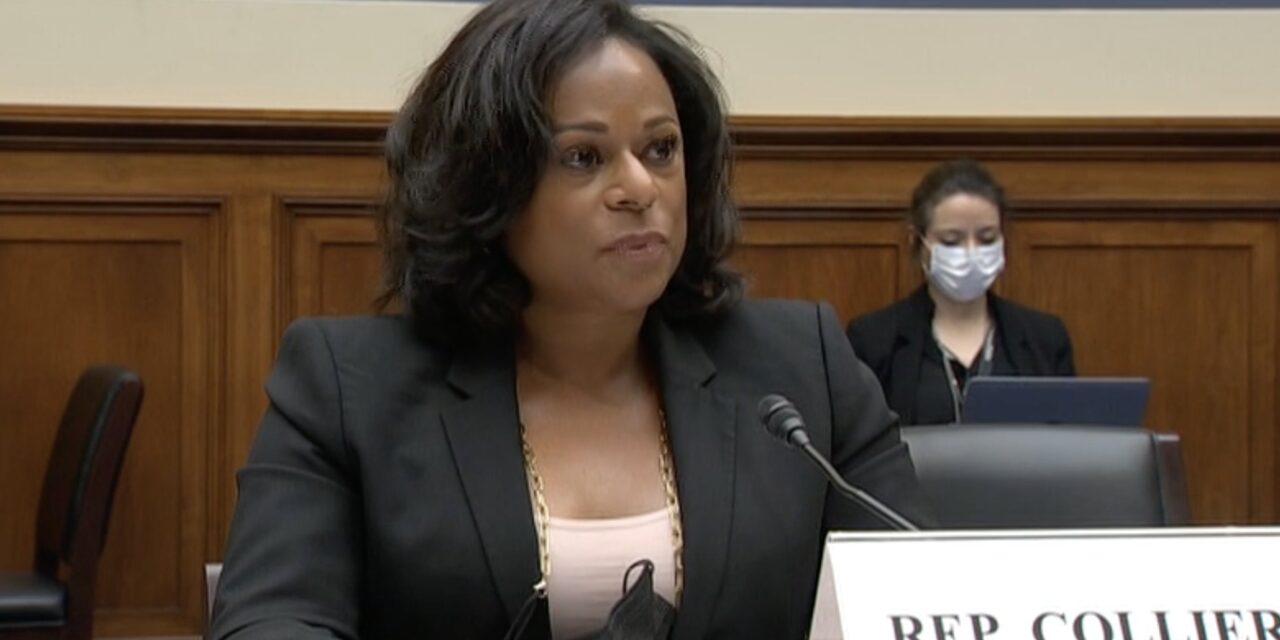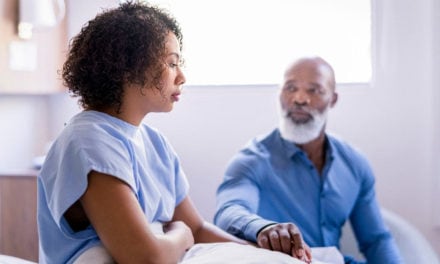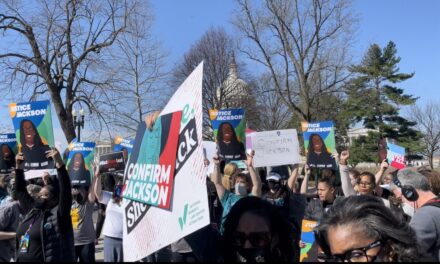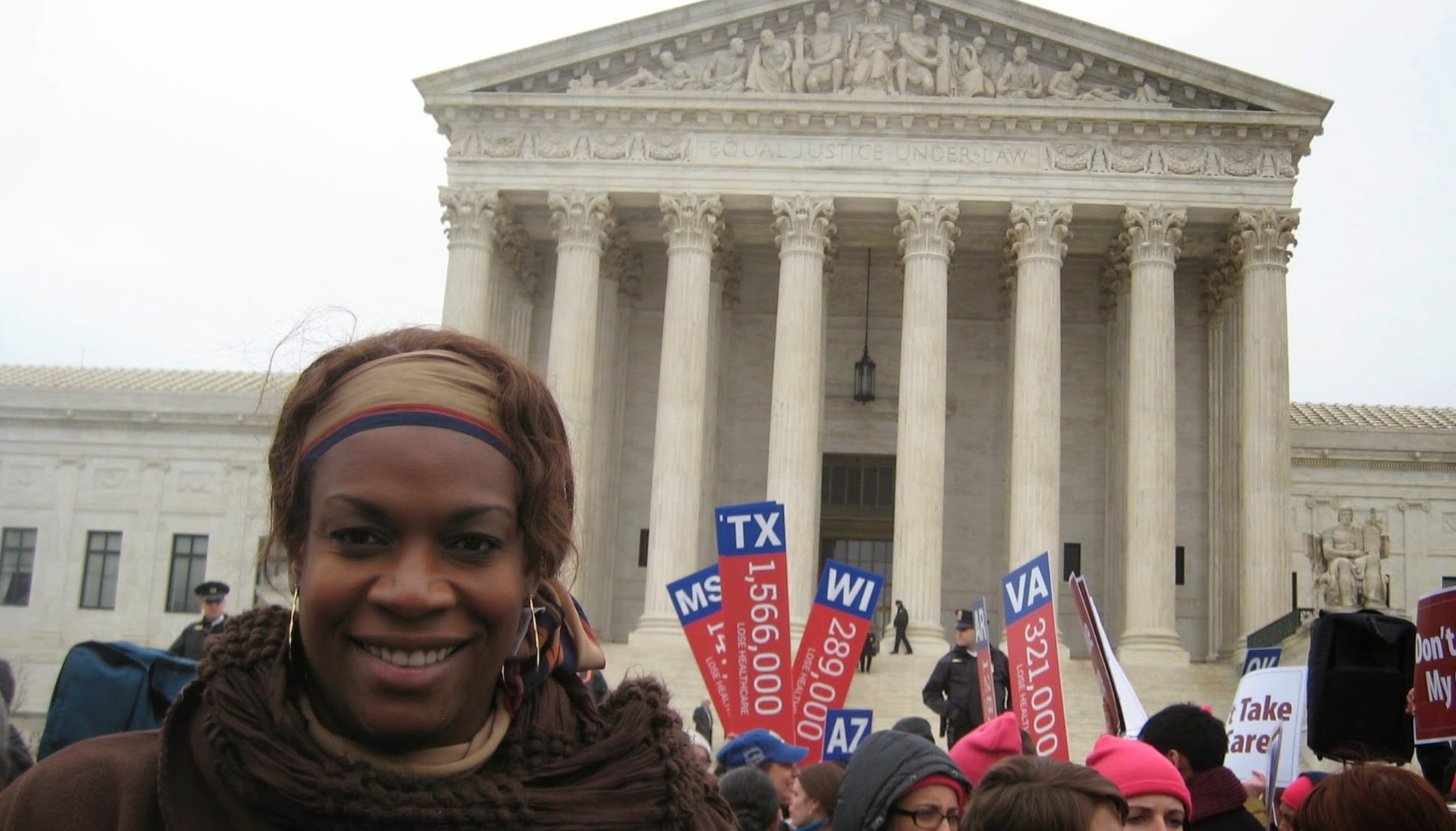‘We had no choice,’ lawmakers say on walkout to thwart voting restrictions
By NICKI MAYO
At a time when she had planned to be celebrating her great-granddaughter’s birthday with family in Texas, state Rep. Alma Allen was in Washington, D.C., trying to enlist help from Congress in blocking voter suppression back home.
Allen’s constituents reside in Houston, which is inside of Harris County — a region caught in the crosshairs of the Texas legislature’s effort to impose tighter restrictions on voting.
“I left my family, my children, my grandchildren, my great grandchildren,”Allen said. “The sacrifice is worth it because we are here for the long haul.”
Allen is among the Texas Democratic lawmakers who walked out of the statehouse in Austin and flew to Washington earlier this month to block the controversial changes to Texas election laws. State Reps. Nicole Collier and Senfronia Thompson testified before the House Oversight and Reform subcommittee last Thursday on why they resorted to such drastic measures.
“All the amendments that were presented by our Democratic colleagues were declined on party lines,” said Collier, chair of the Texas Legislative Black Caucus. “There was no more discussion. We saw the writing on the wall.”
“You’re damned right I left Texas, and I’m glad I did,” Thompson said. “And if I had to walk to Washington, D.C., to get you to hear what I have to say, to fight for my constituents, I’ll use any means necessary to get my point over.”
Texas Reps. Senfronia Thompson and Nicole Collier testify before the House Oversight and Reform subcommittee on civil rights and civil liberties on July 29, 2021. (Video: C-SPAN)
Lobbying Capitol Hill
During their first week in the nation’s capital, these women hit the ground running with their Democratic colleagues. They took meetings with several U.S. senators and representatives on Capitol Hill. The second week was dedicated to a voting rights roundtable with members of Congress, various state legislators and activists, including Vice President Kamala Harris, Senate Majority Leader Charles Schumer, House Democratic Caucus Chair Hakeem Jeffries and Bernice A. King, daughter of the Rev. Dr. Martin Luther King Jr.
“We had no choice but to act,” said Texas Rep. Sheryl Cole, who represents District 46 which covers Travis County, East Austin, Manor and Pflugerville. “The Republicans put forth a very regressive bill that was killing voting freedom.”
Rep. Rhetta Bowers said they’ve gotten phone calls or emails from fellow state assembly members in Georgia and South Carolina expressing support for the walkout.
“It’s encouraging, having them validate our work and assuring us that our presence here is making a difference,” Bowers said. “They champion the fact that we are using procedural measures to break the quorum and kill the bill.”
The regular legislative session ended in May as Democrats walked off the floor, preventing a quorum for a vote on the now dead Senate Bill 7, which is considered the origin of the two bills that Texas Gov. Greg Abbott filed in the legislature’s special session, House Bill 3 and Senate Bill 1. If the Democratic lawmakers who left town remain gone through the special session, those bills will die.
“You’re damned right I left Texas. And I’m glad I did.” — Texas state Rep. Senfronia Thompson
The lawmakers said they have no plans to back down.
“When things change then we will change,” Allen said. “We are here for the long haul.”
Allen added that if the governor calls another session, “we call another walkout. … We are here until the deal goes down.”
The author of the legislation, Republican Sen. Bryan Hughes, told the Texas Tribune his goal is to carry out common sense reforms that ensure the integrity of elections. “This bill is about making it both easy to vote and harder to cheat,” Hughes said.
Abbott appeared on the Texas Standard talk radio show July 15 to double down on GOP sentiments against the walkout. The governor said Republicans are in “no mood for additional compromise” on the proposed voter bills.
State Democratic leaders say HB3 and SB1 are Republican-endorsed backlash bills in response to the 2020 voter turnout in heavily Black and heavily Hispanic precincts surrounding Houston.
The bills tighten restrictions on voting by mail and prohibit after-hours and drive-through voting facilities. These are all measures that voting rights advocates attribute to helping voter mobilization efforts in 2020.
“This impacts not only Texas but every state in the United States that has a Republican governor,” Allen said. “They have the same agenda.”
Allen explained some of the ramifications should the measures proposed in Texas become law. “If you want to take your grandmother to the polls, you can not drive her and her friends,” she said. “If you take one person to the poll, everybody in the car has to be related to you. Then you have to sign an affidavit that you brought them to the polls, or you will be charged with a misdemeanor or a felony.”
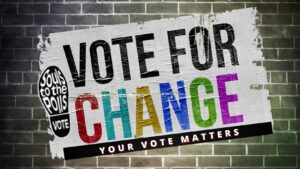
Voter suppression proposals in Texas and other statttttes would eliminate outreach efforts like “Souls to the Polls.”
Bowers pointed out that the legislation would also thwart “Souls to the Polls” efforts that mobilize busloads of voters following Sunday church services.
“Some people wait until Sunday for the ‘Souls to the Polls’ so that they can go vote with their church family,” Bowers said.
Cole said Texas Democrats took bold steps to help protect state voter rights. However, she said, “it became clear that Republicans would not make the bill any better, because we had 24 hours of testimony largely against the bill that they were offering, and they would not take any Democratic amendments.”
The Texas Legislative Black Caucus joined forces with the Texas State House Democratic Caucus and Hispanic lawmakers to stage the second walkout and prevent the quorum necessary to vote on the bill.
The Texas State Legislature is composed of 31 members in the Senate and 150 in the House of Representatives, including 10 Black women. The Texas Legislative Black Caucus has two senators and 17 representatives.
Clockwise from top right, Texas Reps. Rhetta Andrews Bowers, Sheryl Cole and Dr. Alma A. Allen speak with Black Women Unmuted editor at large Nicki Mayo.
From Voter Suppression to Voter Intimidation
Bowers says she experienced voter intimidation firshand outside the polls in District 113, which covers Sunnyvale and parts of Rowlett, Garland, Mesquite, Seagoville, Combine, Balch Springs and Dallas. Some candidates breached the 100-foot marker and approached voters within that campaign-free zone, she said.
“The Proud Boys certainly were in our area. And I had people telling me that I better get away from the polls. I’m the elected official and incumbent. And [they were] calling me ‘Rhetta, Rhetta get out of here!’ and calling me a racist.”
She said some poll watchers engaged in voter intimidation practices beyond the polls. “I don’t think it just has to do with the poll watcher right inside; it happens outside the polling location as well,” Bowers added.
From two Austin walkouts, to lobbying Congress, Bowers said this legislative protest is strengthening the bond among these Texas lawmakers.
“We are more unified now, than when we left,” Bowers said. “I believe we will go back and be all the better when it comes to our collective work as a legislative body. We will go back to Texas as better legislators.”
Nicki Mayo is editor at large of Black Women Unmuted, a Fierce content partner.

